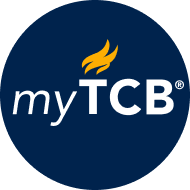


Members of The Conference Board get exclusive access to the full range of products and services that deliver Trusted Insights for What's Ahead ® including webcasts, publications, data and analysis, plus discounts to conferences and events.
16 November 2018 / Article
Tony Hsieh, founder and CEO, Zappos
Maya Angelou, poet and author
Customer experience is about building trust and you build that trust through the experiences you create. Your customers are human and have emotions, so the best way to differentiate yourself is to create an experience that connects with those emotions, regardless of what industry you’re in. There is no one-size-fits-all way of doing this—each company needs to create its own strategy based on culture, business objectives, and empowering employees to serve customers in an individual way. Getting the entire company to operate this way will take a lot of planning, a change management approach, and collaboration between the sales, marketing, HR, corporate communications, engineering, finance, operations, and customer service departments.
When 112 practitioners and experts met to talk about customer experience, we took notes. Here are the highlights:
Tony Hsieh, founder and CEO, Zappos
Maya Angelou, poet and author
Customer experience is about building trust and you build that trust through the experiences you create. Your customers are human and have emotions, so the best way to differentiate yourself is to create an experience that connects with those emotions, regardless of what industry you’re in. There is no one-size-fits-all way of doing this—each company needs to create its own strategy based on culture, business objectives, and empowering employees to serve customers in an individual way. Getting the entire company to operate this way will take a lot of planning, a change management approach, and collaboration between the sales, marketing, HR, corporate communications, engineering, finance, operations, and customer service departments.
When 112 practitioners and experts met to talk about customer experience, we took notes. Here are the highlights:

myTCB® Members get exclusive access to webcasts, publications, data and analysis, plus discounts to events.
You already have an account with The Conference Board.
Please try to login in with your email or click here if you have forgotten your password.

